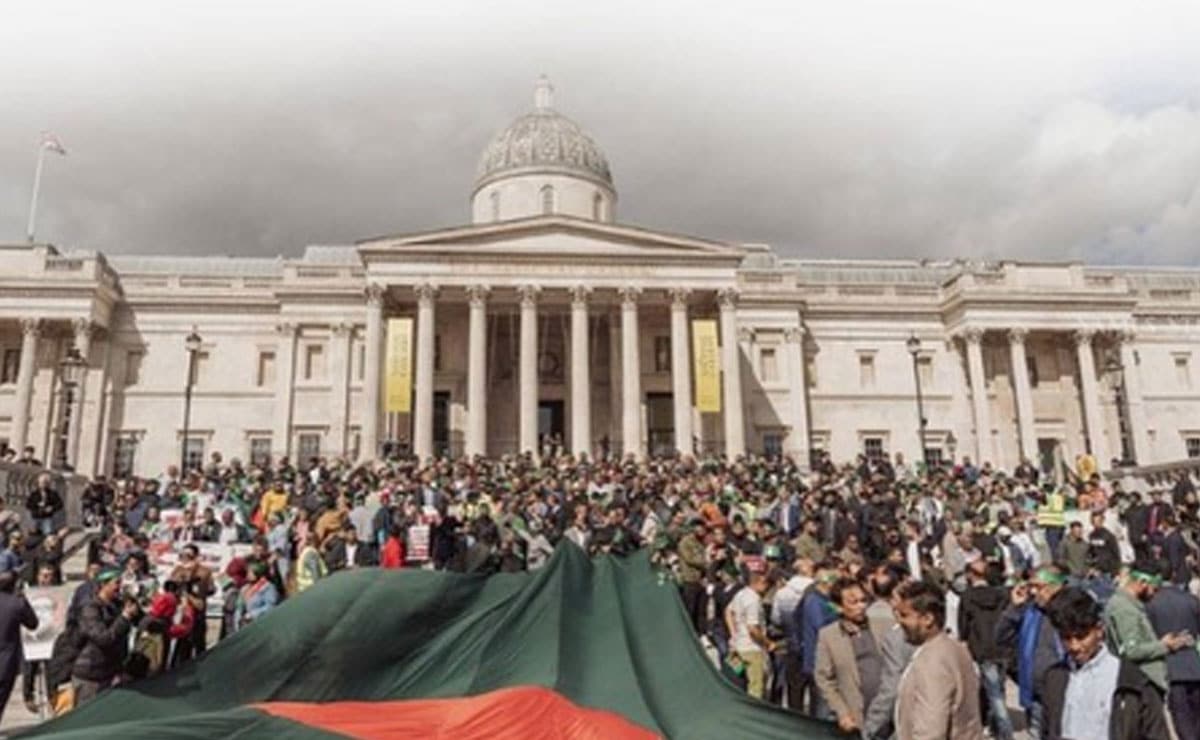Diaspora protests in London against human rights abuses under Yunus regime in Bangladesh
The protesters marched from Trafalgar Square to Downing Street on September 15, where they handed over a letter addressed to the British Prime Minister Keir Starmer.

London: Over 2,000 members of the Bangladeshi diaspora in the United Kingdom recently held a demonstration in Trafalgar Square in central London to protest the repression, human rights abuses, and undemocratic activities exhibited by the “unelected” Muhammad Yunus-led interim government in Bangladesh, said the Awami League.
The protesters marched from Trafalgar Square to Downing Street on September 15, where they handed over a letter addressed to the British Prime Minister Keir Starmer. The party emphasized that in the letter, the Bangladeshi diaspora expressed their concern about the erosion of the rule of law and the assaults on Bangladesh’s free, pluralistic, and democratic political culture.
“The UK Government cannot stand by while its close ally descends into lawlessness. The history of our two countries is intertwined. Hundreds of thousands of concerned people living in Great Britain today with family and friends in Bangladesh want to see the UK take a proactive interest,” read the letter as quoted by the Awami League “We ask the Government to hold the interim administration to account for the human rights abuses over which it has presided; to supervise free and fair democratic elections; and to enlist the support of the international community where necessary to ensure that democracy prevails in Bangladesh,” it added.
Also Read: Madhya Pradesh to receive many gifts from PM Modi, says CM Mohan Yadav
According to the Awami League, the crowds in central London also protested attacks on religious minorities that have taken place since the Yunus administration seized power. The party revealed that in the first three months of the Yunus regime, over 2,000 attacks against Hindus and other religious minorities were reported, and these targeted acts of violence continue unabated.
The party asserted that the current state of Bangladesh has drawn international condemnation from human rights organisations, which have criticised the repression of media, violence against religious minorities, and the persecution of an entire political party and its supporters.
Highlighting the ban on Awami League from participating in future elections by the “unelected” interim government, the party said that as a result, tens of millions of Bangladeshis will be disenfranchised. The party stressed that the protesters also condemned the thousands of arbitrary and politically motivated charges that have been filed against Awami League supporters.
The Awami League alleged that members of the media and judiciary have also been targeted because of their political allegiance. “Over 160 journalists deemed to be sympathetic to the former government have had their press accreditation suspended, and several senior journalists have been arrested and detained, some on false murder charges, with limited access to lawyers,” the party noted.
